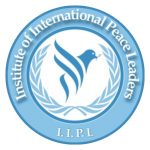Institute of International Peace Leaders

Institute of international peace leaders
"Empowering Leaders, Building Bridges, Creating Peaceful Communities."
Application Requirements for Track II Diplomats
Functions of Track II Diplomats:
- IIPL Track II diplomats operate complementary, informally, focusing on building relationships, facilitating dialogue, and exploring creative solutions to conflicts.
- IIPL Track II diplomats propose and facilitate confidence-building measures (CBMs) to reduce tensions and create a conducive atmosphere for official negotiations. These measures include ceasefire agreements, humanitarian initiatives, and people-to-people exchanges.
- IIPL Track II diplomats may facilitate communication and coordination between Track I and Track II actors. They help bridge gaps, facilitate understanding, and foster synergy between official and unofficial peacebuilding and international relations efforts.
- IIPL Track II diplomats operate independently and prioritize building trust and facilitating dialogue rather than advancing specific government agendas.
- IIPL Track II diplomats provide informal communication channels between conflicting parties or between governments that may not have official diplomatic relations. They convey messages, explore ideas, and build trust in a less constrained environment than formal diplomatic settings.
Requirements to Becom Track II Diplomat of IIPL:
To become a Track II Diplomat with the Institute of International Peace Leaders (IIPL), applicants must meet certain requirements and qualifications. While specific requirements may vary based on IIPL’s policies and needs, here are some common criteria that potential Track II diplomats may be expected to fulfill:
1. Relevant Experience: Candidates should have experience or expertise in diplomacy, conflict resolution, peacebuilding, or related fields. This could include work in government, international organizations, non-governmental organizations (NGOs), academia, or civil society.
2. Subject Matter Expertise: Track II diplomats often possess specialized knowledge or expertise in specific regions, conflicts, or thematic areas relevant to peace and security. This might include familiarity with international law, human rights, political science, sociology, or related disciplines.
3. Interpersonal and Communication Skills: Effective Track II diplomats should have strong interpersonal and communication skills, including the ability to listen actively, facilitate dialogue, and build trust among diverse stakeholders.
4. Cultural Sensitivity and Adaptability: Given the diverse contexts in which Track II diplomats operate, cultural sensitivity and adaptability are essential qualities. Candidates should be able to navigate complex cultural dynamics, respect diverse perspectives, and adapt their approaches accordingly.
5. Commitment to Peace and Conflict Resolution: Candidates should demonstrate a genuine commitment to promoting peace, dialogue, and understanding across cultural, religious, and political divides.
6. Availability for Engagement: Depending on IIPL’s activities, candidates should be willing and able to participate in diplomatic engagements, conferences, workshops, and other events related to peacebuilding and conflict resolution.
7. Alignment with IIPL’s Mission and Values: Candidates should align with IIPL’s mission, vision, and values, including its commitment to non-partisanship, non-politicalism, non-sectarianism, and non-profit pursuit of peace.
8. Ethical Conduct and Professionalism: Integrity, ethical conduct, and professionalism are paramount in Track II diplomacy. Candidates should adhere to high ethical standards, maintain confidentiality when necessary, and act in accordance with IIPL’s values and principles.
9. Networking and Connections: Candidates with existing networks and connections within relevant communities, governments, or organizations may have an advantage in Track II diplomacy.
10. References: IIPL may request references or letters of recommendation from individuals who can attest to the candidate’s qualifications, experience, and character.
Prospective Track II diplomats may need to undergo a selection process, which could include submitting a resume or CV, participating in interviews or assessments, and providing references or letters of recommendation. Additionally, ongoing training, mentorship, and professional development opportunities may be available to support Track II diplomats in their roles.